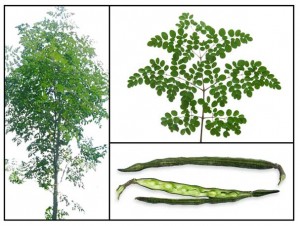 Step aside chia seeds. Your time saving the world from their nutritional woes is over because there is a new nutrition superhero in town. Moringa oleifera (marketed by some brands as Moringa Zinga) is quickly rising in popularity after being featured by Dr. Oz on his talk show. Moringa, also known as the horseradish tree, drumstick tree, sujuna, ben tree, or ben oil tree, is an edible tree native to Africa and Asia. Almost every party of the tree can be used for food, offering a large amount of versatility when incorporating into the diet. Beyond this versatility, why the hum to add moringa to your diet? According to the National Research Council, moringa contains, gram for gram, 4 times vitamin A of carrots, 7 times the vitamin C of oranges, 4 times the calcium of milk, 3 times the potassium of bananas, and 2 times the protein of yogurt. This high nutrient density has earned the plant the nickname of the “miracle tree” or “mother’s best friend.”
Step aside chia seeds. Your time saving the world from their nutritional woes is over because there is a new nutrition superhero in town. Moringa oleifera (marketed by some brands as Moringa Zinga) is quickly rising in popularity after being featured by Dr. Oz on his talk show. Moringa, also known as the horseradish tree, drumstick tree, sujuna, ben tree, or ben oil tree, is an edible tree native to Africa and Asia. Almost every party of the tree can be used for food, offering a large amount of versatility when incorporating into the diet. Beyond this versatility, why the hum to add moringa to your diet? According to the National Research Council, moringa contains, gram for gram, 4 times vitamin A of carrots, 7 times the vitamin C of oranges, 4 times the calcium of milk, 3 times the potassium of bananas, and 2 times the protein of yogurt. This high nutrient density has earned the plant the nickname of the “miracle tree” or “mother’s best friend.”
Bottom line: The miracle tree may offer a promising nutritional content but without any quality clinical trials, the validity of health claims are hard to measure. If you are considering adding moringa to your diet, view it more as a multivitamin, and consult a health care professional for further information.
